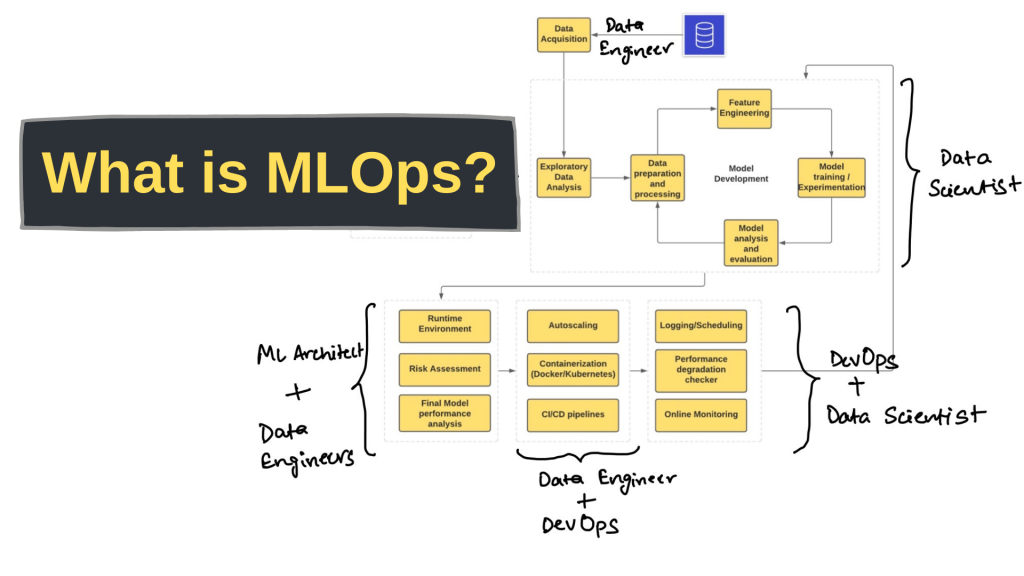
Have you ever wondered what MLOps do? Well, let me tell you, they do a lot! In this article, we will dive deep into the world of MLOps and explore everything you need to know about this fascinating field.
What is MLOps?
MLOps, or Machine Learning Operations, is a practice that combines machine learning with software development to manage the entire machine learning lifecycle. This includes everything from data preparation and model training to deployment and monitoring.
The goal of MLOps is to streamline the machine learning process and make it more efficient, reliable, and scalable. By automating many of the repetitive tasks involved in machine learning, MLOps enables data scientists and machine learning engineers to focus on what they do best – creating innovative and effective machine learning models.
Why is MLOps important?
MLOps is becoming increasingly important as more and more organizations adopt machine learning to drive their business operations. With the rise of big data and the growth of cloud computing, machine learning has become an essential tool for businesses seeking to gain a competitive edge.
However, machine learning is not a one-size-fits-all solution. Every business has unique data and requirements, and these need to be taken into account when developing machine learning models. This is where MLOps comes in – it helps organizations develop customized machine learning models that are tailored to their specific needs.
What are the key components of MLOps?
MLOps is a complex process that involves many different components. Some of the key components of MLOps include:
Data Preparation
Data preparation is a crucial step in the machine learning process. It involves collecting, cleaning, and transforming data into a format that can be used by machine learning algorithms. MLOps streamlines this process by automating many of the repetitive tasks involved in data preparation, such as data cleaning and feature extraction.
Model Training
Model training is the process of creating a machine learning model by training it on a dataset. MLOps makes this process more efficient by automating many of the tasks involved in model training, such as hyperparameter tuning and model selection.
Model Deployment
Model deployment is the process of deploying a machine learning model into a production environment. MLOps makes this process more reliable by automating many of the tasks involved in model deployment, such as version control and testing.
Model Monitoring
Model monitoring is the process of tracking the performance of a machine learning model in production. MLOps makes this process easier by providing tools for monitoring and troubleshooting machine learning models.
What skills do you need to be an MLOps engineer?
To be an MLOps engineer, you need to have a mix of technical and soft skills. Some of the key technical skills required for MLOps include:

- Proficiency in programming languages such as Python and R
- Knowledge of machine learning frameworks such as TensorFlow and PyTorch
- Experience with cloud computing platforms such as AWS and Azure
- Understanding of software development practices such as Agile and DevOps
In addition to technical skills, MLOps engineers also need to have strong soft skills such as:
- Communication skills
- Problem-solving skills
- Collaboration skills
- Adaptability
Conclusion
In conclusion, MLOps is a crucial practice that combines machine learning with software development to manage the entire machine learning lifecycle. It helps organizations develop customized machine learning models that are tailored to their specific needs, while also streamlining the machine learning process and making it more efficient, reliable, and scalable. If you’re interested in pursuing a career in MLOps, make sure you have the technical and soft skills required for success.